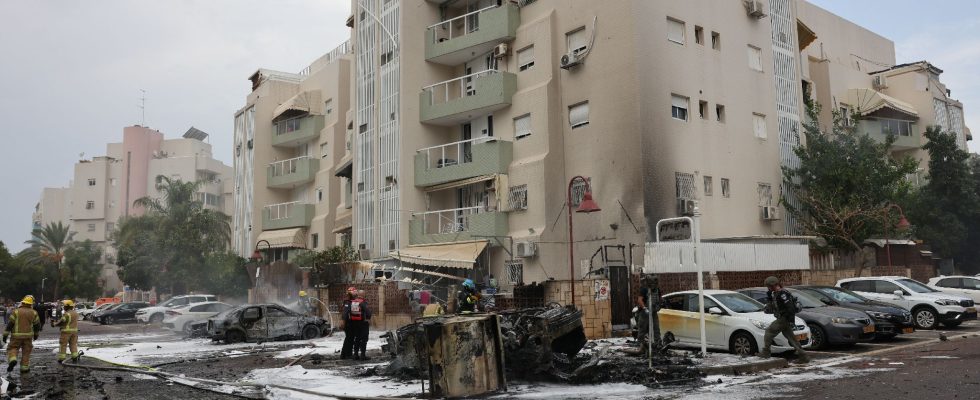In the heights of Arkoub, a border region with Israel, tension rose a notch on Sunday morning, October 8, after an exchange of fire between Hezbollah and the Israeli army. Lebanese who came to spend the weekend in their village in the South quickly returned to the capital, for fear of reliving the prologue of the July 2006 war. Because the question of possible participation of the pro-Iranian party in the surprise offensive launched Saturday by Hamas against Israel is on everyone’s lips. After a falling out linked to the war in Syria, Hamas and Hezbollah seem closer than ever.
Some of the leaders of the Palestinian Islamist movement have found refuge in Lebanon and the head of its political branch, Ismaël Haniyeh, has made several visits to Beirut in recent years, to meet in particular with the secretary general of Hezbollah, Hassan Nasrallah. Last year, the latter dedicated the strategy of “unity of fronts”, recognizing the fact that Hamas and Hezbollah are participating in the same war against the Israeli enemy.
The Hamas offensive suggests that it was, at a minimum, prepared with Hezbollah and its Iranian sponsor. In this context, the Shiite party may be tempted to cross the Rubicon, taking advantage of the fact that Israel has never appeared so weakened since the first days of the October 1973 war.
Hezbollah’s entry into the conflict, a means of pressure
If it takes place, it is likely that Hezbollah’s entry into the war will take place at a later stage in order to maintain this option as a means of pressure on Israel. If the Jewish state launches a ground offensive in the Gaza Strip with the aim of eliminating Hamas, Hezbollah and its Iranian sponsor will clearly raise the question of opening a second front from South Lebanon. “If the Israeli enemy storms or invades the Gaza Strip, Hezbollah will not remain neutral,” warns Faisal Abdel Sater, an analyst close to the Shiite party. “Hamas obviously coordinated this attack with its partners. If Israel kills thousands of civilians and militants, the involvement of Hezbollah would be entirely possible,” confirms Mohanad Hage Ali, researcher at the Carnegie Middle East Center.
The operation would, however, be very risky for the “party of God”, since the Israeli response would be destructive for Lebanon, in a context where Israel would be supported by the United States, while Arab countries, in particular Saudi Arabia , would probably stay out of the equation. Certainly, Hezbollah can hardly let Israel destroy Gaza and annihilate Hamas without reacting. But reacting could threaten its very existence.
It is likely that Tehran, which should have the last word on this subject, will take two factors into account: the support that Hezbollah could benefit from in Lebanon and the region, and the capacity of the movement to deal a strong enough blow to Israel to change the rules of the game. Two elements which seem quite uncertain at the moment.
